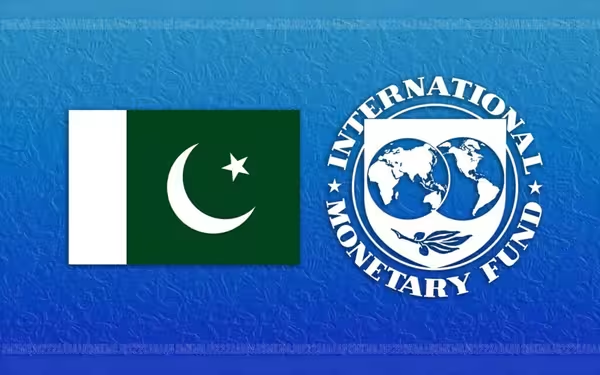Thursday, July 4, 2024 07:30 PM
IMF Urges Pakistan to Implement Flat GST Rate
- IMF recommends 18% flat GST rate in Pakistan for economic growth
- Transition to indirect taxation may impact lower-income groups disproportionately
- Pakistan urged to broaden tax base and enhance compliance for fairer system
 Image Credits: HUM News - English
Image Credits: HUM News - EnglishThe IMF recommends Pakistan to introduce an 18% flat GST rate to boost economic growth, but the shift to indirect taxation may disproportionately affect lower-income groups. Broadening the tax base and enhancing compliance are crucial for establishing a fairer tax system.
The International Monetary Fund (IMF) has recommended that Pakistan's Federal Board of Revenue (FBR) introduce a flat General Sales Tax (GST) rate of 18% on a wide range of goods, including essential items like food and medicine, as well as everyday products like stationery. This move aims to bolster Pakistan's financial reserves significantly, potentially increasing the nation's GDP revenue by about 1.3%, equivalent to approximately Rs1,300 billion.
Pakistan currently maintains a tax-to-GDP ratio of around 10%, much lower than the OECD average of 34%. A tax-to-GDP ratio exceeding 15% is typically deemed crucial for economic growth and poverty alleviation, as it indicates a country's capacity to fund essential public services and infrastructure.
Unlike many OECD nations where consumption taxes contribute an average of 32.1% to total tax revenue, Pakistan heavily relies on indirect taxes, which account for 60% of its overall tax revenue. This unique fiscal strategy reflects Pakistan's economic circumstances and administrative preferences, distinguishing it on a global scale.
The proposed increase in the GST rate and the shift towards a uniform tax rate in Pakistan could have significant economic implications. However, this transition to indirect taxation may disproportionately affect lower-income groups, potentially increasing their tax burdens. Moreover, it is likely to spur inflation, driving up living expenses and potentially dampening consumer spending, which could impede economic growth.
The regressive nature of GST, where individuals across different income brackets pay the same rate, highlights a fundamental inequity in the tax system. Recent data reveals that the wealthiest 10% in Pakistan contribute a smaller proportion of total indirect taxes compared to the poorest 10%. With an average GST rate of 12% in Asia, Pakistan's 18% rate appears relatively high among developing nations.
It is imperative for Pakistan to broaden its tax base, enhance tax compliance through modern systems, simplify tax regulations, and strengthen the FBR to reduce its dependence on indirect taxes. Formalizing the informal sector, raising public awareness about tax responsibilities, enacting legislative reforms, and bolstering international cooperation to combat tax evasion are crucial steps towards establishing a fairer and more balanced tax system.
By implementing these measures, Pakistan can strive towards creating a more equitable tax system that mitigates the disproportionate impact of indirect taxes on lower-income groups.













